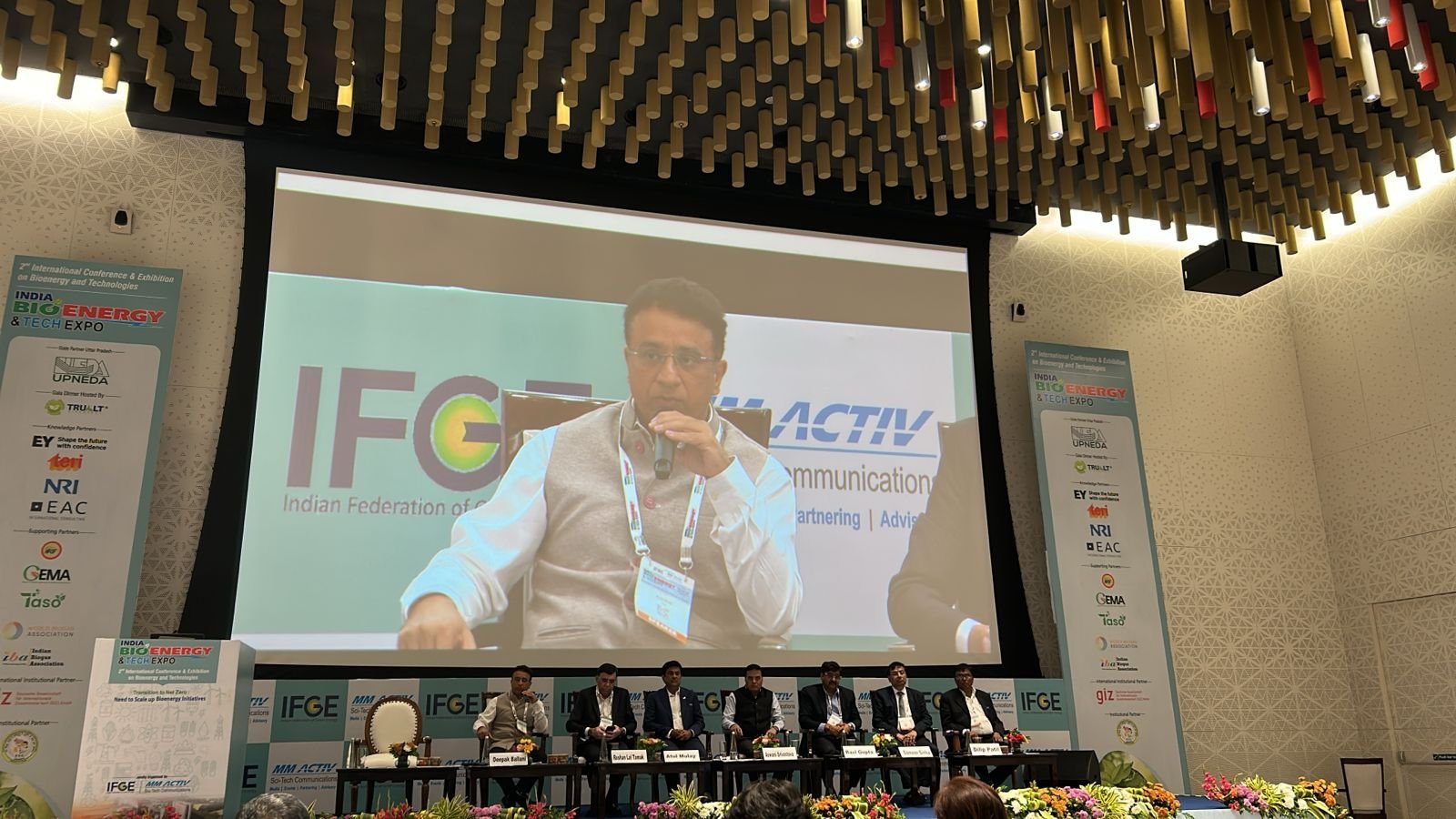Monday, 2 February 2026

On the second day of India BioEnergy & Tech Expo 2025 the session on ‘Sugar to Ethanol – Next Step, Challenges & Emerging Pathways’ highlighted how India’s sugar sector is driving ethanol production & energy transition.
The experts and policy makers Ashwini Shrivastava, Joint Secretary (Sugar), Department of Food and Public Distribution ; Deepak Ballani, Director General, Indian Sugar Manufacturing Association; Atul Mulay, Chairman, Bioenergy Committee, IFGE & President, Bioenergy, Praj Industries; Sameer Sinha, CEO – Sugar Business, Triveni Engineering & Industries Limited; Roshan Lal Tamak, ED & CEO, DCM Shriram LTD. and Dilip Patil, Co-Chairperson, IFGE Sugar Bioenergy Forum participated in the panel discussion. Ravi Gupta, Chairman, IFGE Sugar Bioenergy Forum & ED, Shree Renuka Sugars moderated the session.
Ashwini Shrivastava spoke about government initiatives to balance sugar production with ethanol blending targets, ensuring price stability and fair returns to farmers.
“For the 2025–26 sugar season, surplus production is expected, with estimates of around 350 LMT by ISMA, and the State Government’s estimate is about 340 LMT. Further clarity will come once the first advance agricultural estimates are available from the Agriculture Ministry in October. The sugar industry is expected to divert about 45–50 LMT of sugar towards ethanol. We will review the sugar balance-sheet after that and accordingly take a call on exports”, said Shrivastava.
Deepak Ballani focused on sugarcane juice diversion towards ethanol production, emphasizing the importance of managing surplus efficiently for industry stability. He stressed the industry’s call for an increase in sugar MSP and ethanol procurement prices, which have remained stagnant, calling it a setback for the industry.
“The ethanol procurement prices from B Heavy Molasses and Sugarcane Juice should be increased by at least Rs. 5 a litre, to make it cost-neutral. Regarding the MSP of sugar, I would request the Government to increase the sugar MSP to Rs. 40 a kilo by October–November, to ensure fair returns”, he said.
Atul Mulay, Chairman, Bioenergy Committee, IFGE & President, Bioenergy, Praj Industries highlighted technology leadership in ethanol production, Praj’s work in advanced biofuels & 2G ethanol plants, and how innovation is shaping India’s bioeconomy.
Sameer Sinha, CEO – Sugar Business, Triveni Engineering & Industries Limited discussed India’s role as the 3rd largest aviation market, importance of SAF (Sustainable Aviation Fuel), ethanol-to-jet pathways, and India’s advantage of low-carbon ethanol.
Roshan Lal Tamak, ED & CEO, DCM Shriram LTD. spoke on enhancing sugarcane productivity, agronomy best practices, and adoption of new technologies for long-term sustainability. He said that the focus should be on improving the cane productivity, and there is an urgent need for varietal development and for pushing mechanisation etc. “There is a need for a coordinated effort for this, which will need some structure for coordinating and monitoring bodies that should be created much along the lines of the Sugarcane Development Mission and National Sugarcane Development Board to oversee the progress made by the various institutions, research bodies, and industry players in cane varietal development and related activities”, he explained.
Dilip Patil, Co-Chairperson, IFGE Sugar Bioenergy Forum shared production insights: 110 LMT sugar production, diversion for 1050 crore litres ethanol, and export potential – particularly from Maharashtra.
Ravi Gupta facilitated discussions on ethanol pricing (Rs10 benefit achieved) and the road ahead for India to become a global ethanol leader.